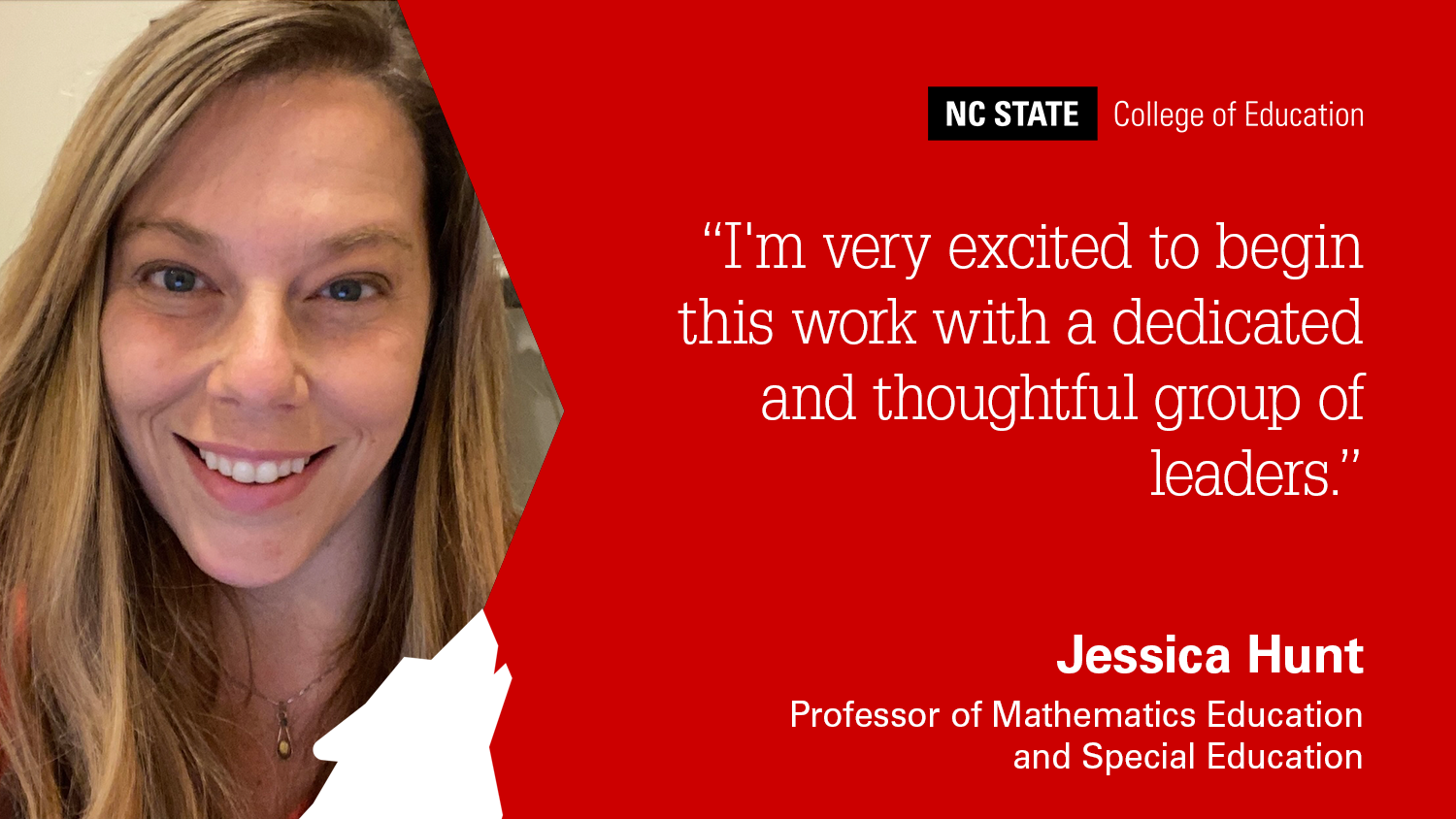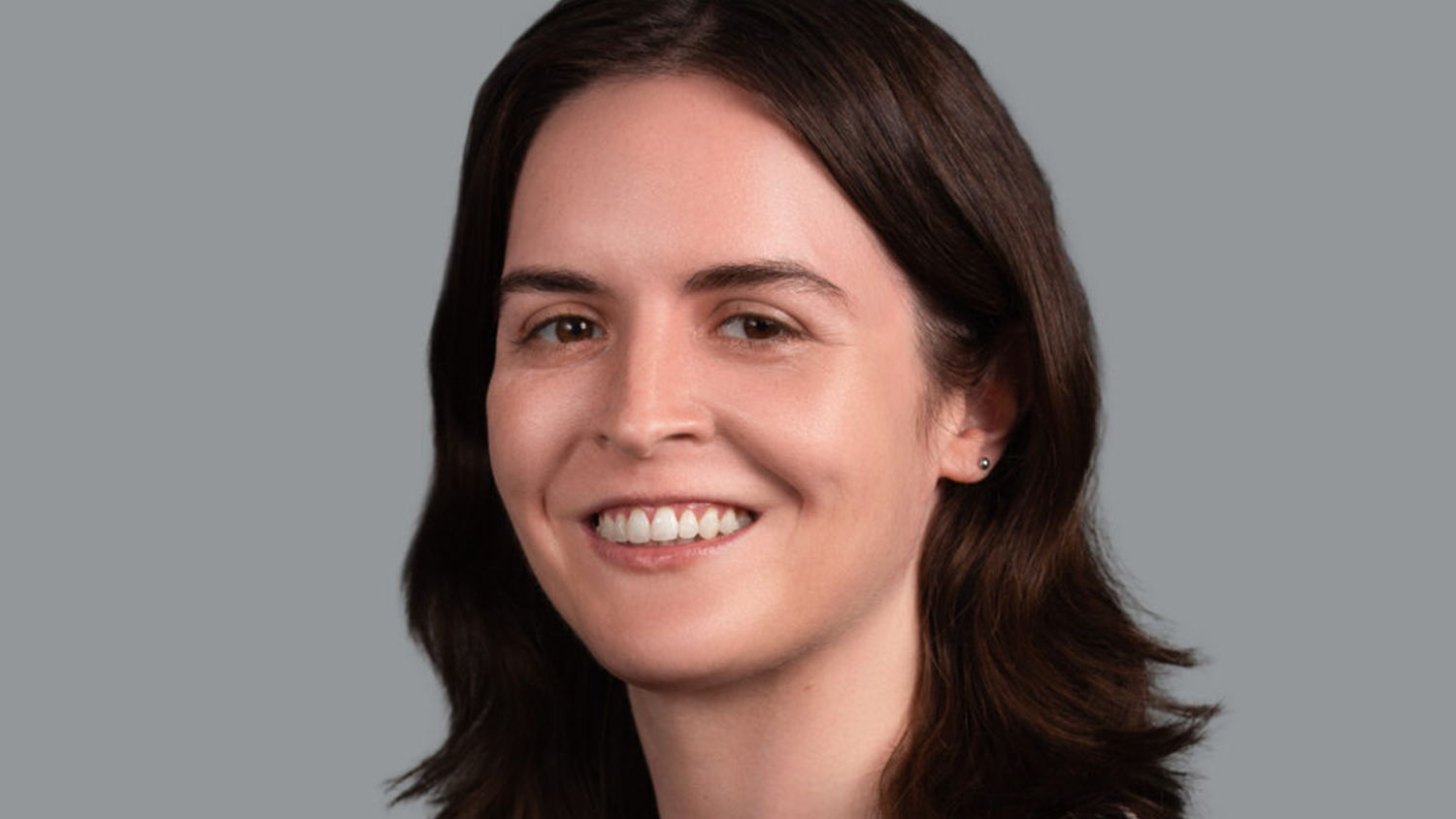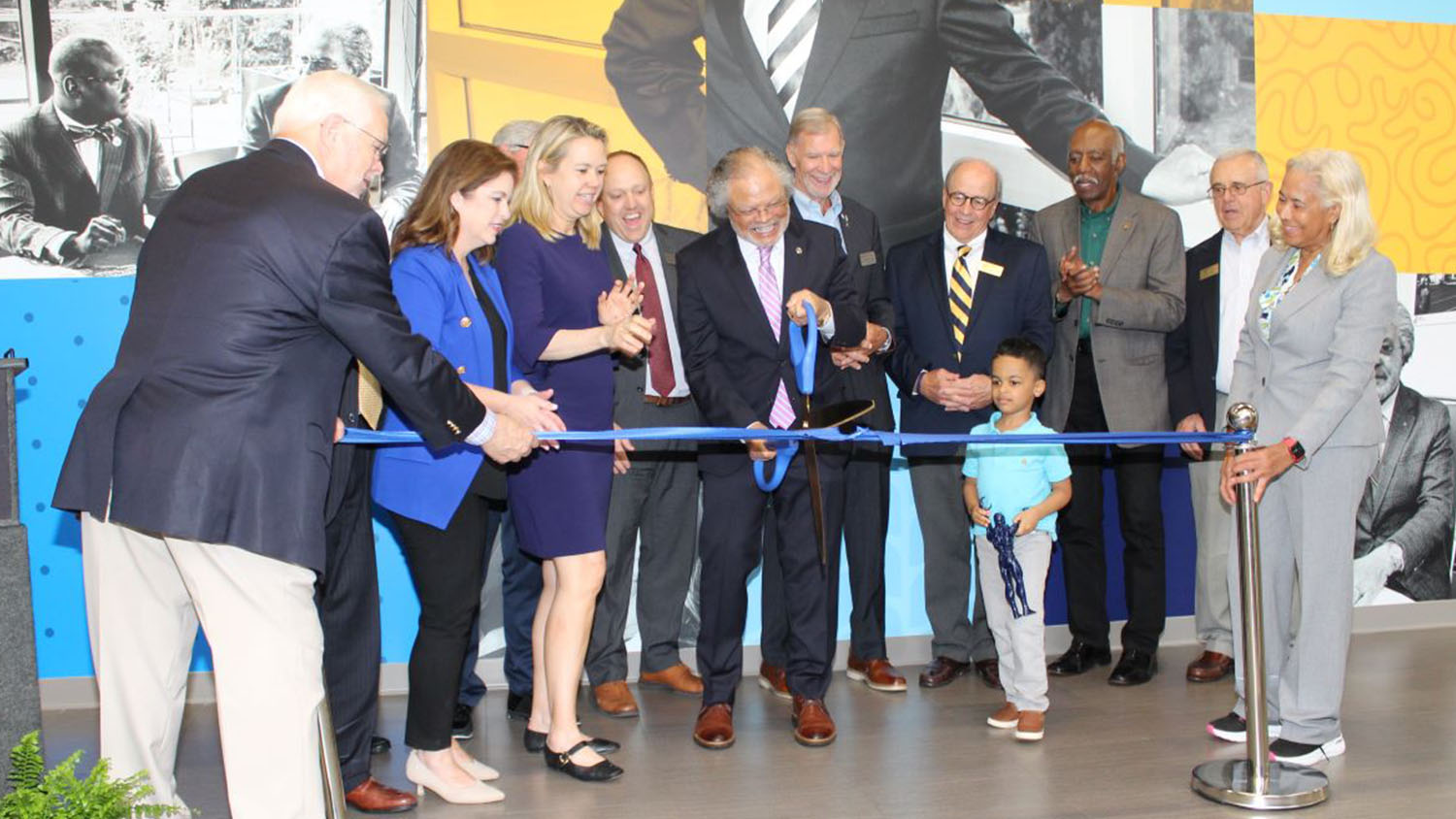Three Recent College of Education Graduates Receive 2024 Outstanding Dissertation Awards

Three recent NC State College of Education alumni were recognized for their scholarship when they were presented with Outstanding Dissertation Awards during the college’s May 2024 graduation ceremony.
Luke Boden Carman ’24PHD won for the Department of STEM Education, Courtney Samuelson ’23PHD won for the Department of Teacher Education and Learning Sciences and Dana Thomas ’23PHD won for the Department of Educational Leadership, Policy, and Human Development.
You can learn more about these recent graduates and their dissertations in the pieces below.
Luke Boden Carman
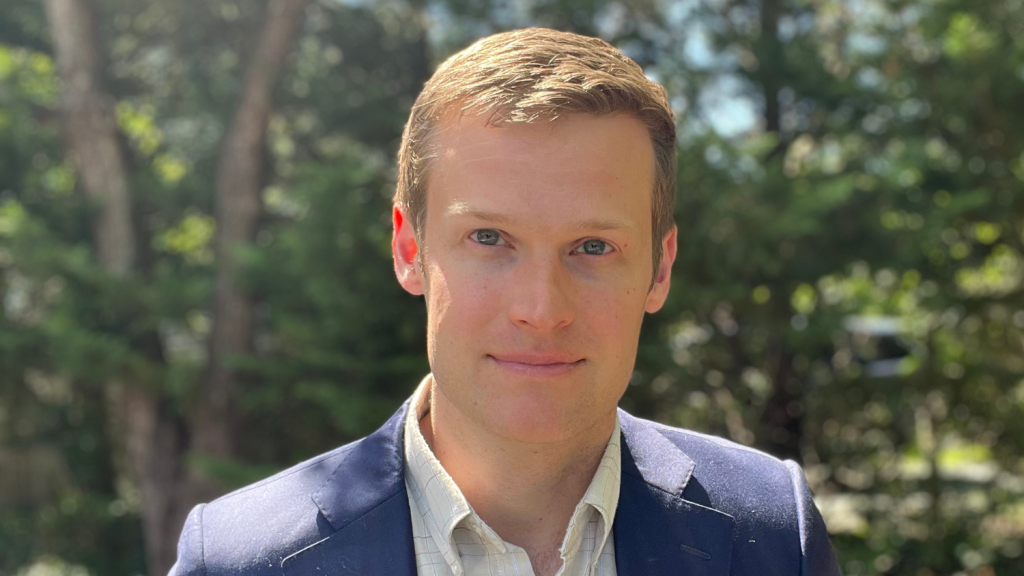
Ph.D. in Learning and Teaching in STEM mathematics and statistics education concentration
Advisors: Assistant Professor of Mathematics Education Robin Anderson and Associate Professor of Mathematics Education Temple Walkowiak
Luke Boden Carman has always been interested in how people with different sets of expertise and different amounts of power can learn together across different contexts and roles, and realized that student teaching experiences can be a unique context for this type of learning to occur.
When he came to the NC State College of Education for his doctoral program, he was excited to think about the ways in which student teachers, cooperating teachers and university faculty could learn in the same space as well as how math education, specifically, could become more equitable.
Carman explored these ideas in his award-winning dissertation, entitled “Student Teaching, Power Structures, and Equitable Mathematics in a Third Space Teacher Learning Community of Practice: A Qualitative, Critical Case Study.”
“I am incredibly honored to have received this award from the college this year. Only one person
gets to put their name as author of a dissertation, but I could not have won this award without an
extremely supportive community. This includes my committee (Drs. Robin Anderson, Temple
Walkowiak, Cyndi Edgington, Sammie Marshall, and Sunghwan Byun), my family and friends,
my fellow graduate students, and the mathematics educators who participated in this project as
members of the learning community,” he said.
Carman’s dissertation examined how learning happened for a group of pre-service teachers, cooperating teachers and mathematics teacher educators in a third space learning group known as “The Math Ed Collective,” with a specific focus on how the learning community engaged with issues of equity and how sociopolitical and teacher learning power structures shaped participants’ opportunities to learn.
Findings showed the importance of shared facilitation in engaging participants in learning about equity as facilitators brought their experiences and artifacts from other communities of practice to the conversation and that participants frequently engaged with sociopolitical power structures in ways that reinforced dominant discourse narratives.
Findings also showed that third space forms of engagement such as the collective and its shared facilitation responsibilities rendered teacher learning less hierarchical.
“Experienced teachers and university faculty who welcome student teachers into the profession also need to learn alongside those novices in order to be effective mentors and improve their own pedagogies,” Carman said. “Throwing all of these learners together was just a really rich opportunity to learn from a community of really thoughtful mathematics educators.”
As he prepares to graduate and take on a role as director of Community Schools partnerships at Student U, Carman is excited to build on his dissertation work and lessons learned in the College of Education as he thinks about ways to bring together parents, students, teachers, school staff, community members and partners in one space to develop more supportive and effective Community Schools.
“I’m going to be putting into practice so much of what I have been researching. Moreover, my time at NC State gave me both the ability to synthesize the research on CommunitySschools, and the opportunity to build my skill set in visiting schools and supporting staff there, which is exactly what I’ll be doing in supporting Community Schools coordinators at Student U,” he said.
Courtney Samuelson
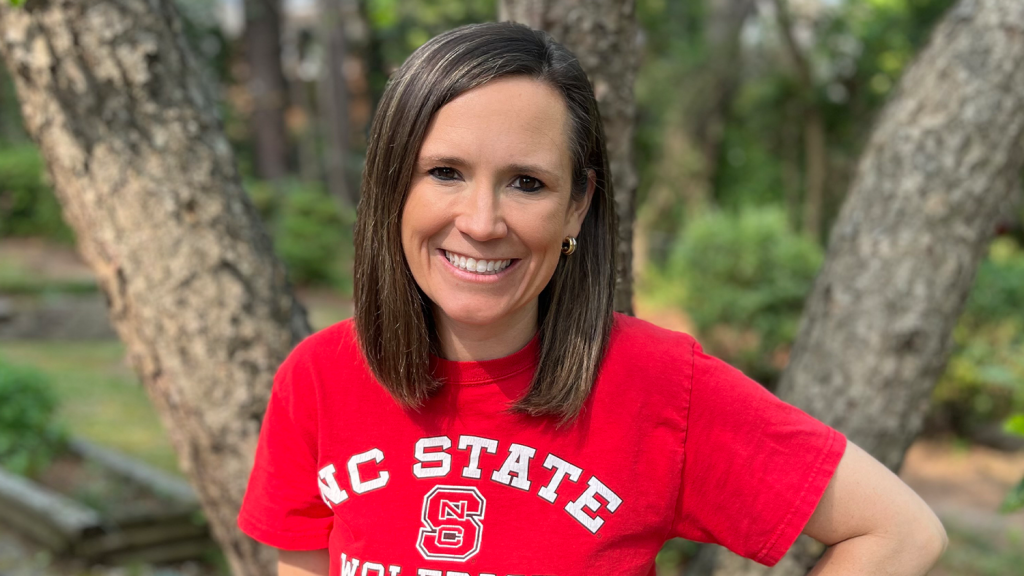
Ph.D. in Teacher Education and Learning Sciences literacy and English language arts concentration
Advisor: Associate Professor of Literacy Education Dennis Davis
Courtney Samuelson has a passion for teacher education and wanted to be able to support and prepare pre-service teachers with the knowledge and skills to engage in culturally responsive literacy instruction for a diverse student population.
For that reason, she enrolled in the NC State College of Education to earn her doctoral degree and learn more about how to better prepare and support teachers in meeting the needs of students who struggle with reading. Specifically, she wanted to examine why reading interventions in public schools may not adequately support teachers in cultivating the assets of culturally and linguistically diverse students.
She had the opportunity to explore this subject through her award-winning dissertation, entitled “Conflicting Priorities: An Ethnographic Case Study of Literacy Practices and Multi-Tiered Systems of Support in Upper Elementary School.”
“I feel honored and grateful to be recognized for this award,” Samuelson said. “I think of my dissertation as just one among a collective body of amazing research that my fellow Teacher Education and Learning Sciences doctoral graduates conducted this year. Together, our work is aimed toward improving the teaching profession and advancing equity for culturally and linguistically diverse students.”
Saumelson’s dissertation was a case study that used cultural-historical activity theory (CHAT) to examine instructional and intervention practices at an elementary school as they worked to implement a multi-tiered system of support (MTSS) framework, providing insight into the role of personal, interpersonal and cultural-institutional factors that impacted instructional decision making and students’ literacy experiences.
Findings showed that conflicting priorities and responsibilities impacted the implementation of the MTSS program and mediated upper elementary students’ literacy learning, practices and identities. These conflicting demands contributed to inconsistent MTSS program implementation and created challenges to providing literacy support to students.
“My in-depth study highlights the myriad of challenges and demands that elementary school teachers face as they work to meet the diverse literacy needs of their students, especially as they work in schools with staff shortages and a lack of instructional support that has resulted since the COVID-19 pandemic,” Samuelson said. “The brilliant and wonderful fourth and fifth graders in my study did not always receive the support they needed and the support that was promised to them through the MTSS program. My findings highlight the need for literacy support and intervention systems in our schools to put more trust in the knowledge and expertise of our elementary teachers and to empower and coach them to plan and create meaningful literacy experiences for their students.”
Now an assistant professor of education at Methodist University, Samuelson is continuing to support educators’ literacy practices through her teaching and research, and said her time in the College of Education helped prepare her for this role.
“My doctoral studies in the College of Education have equipped me with the knowledge and passion for engaging in this work, and I look forward to engaging in research to further understand and reimagine literacy instruction and intervention practices,” she said.
Dana Thomas
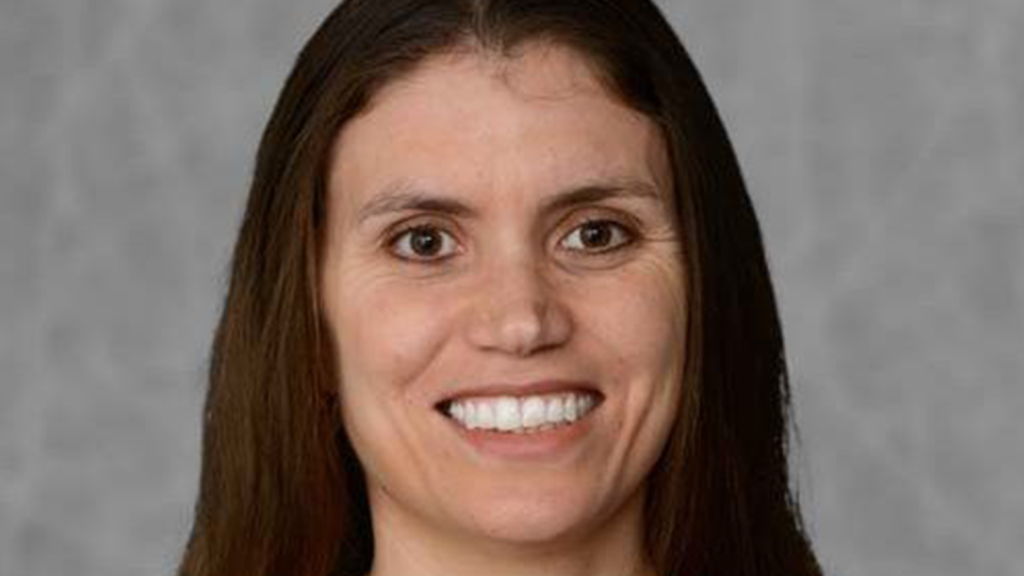
Ph.D. in Educational Leadership, Policy, and Human Development higher education opportunity, equity, and justice concentration
Advisor: Department Head and Alumni Distinguished Graduate Professor Joy Gaston Gayles
In 2019, Dana Thomas’ advisor in the College of Education, Alumni Distinguished Graduate Professor Joy Gaston Gayles, received a request from Alumni Distinguished Graduate Professor of Physics Laura Clarke to bring an education researcher into a study she was conducting about how physics majors’ experiences in course-based experimental mini-labs shaped their self-perceptions and disciplines. Specifically, Clarke was interested in a researcher who was interested in studying factors that support or deter the persistence of students who have been traditionally excluded or marginalized in physics.
Thus began the collaboration between Thomas and Clarke, which ultimately led to Thomas’ award-winning dissertation, entitled “Exploring the Contextually Situated Experiences, Perceptions, Beliefs, and Intentions of College Physics Majors Enrolled in Physics Courses that Incorporate an Interactive Instructional Approach.”
“I am incredibly honored and grateful to receive this award! It means so much to me,” Thomas said. “My specific dissertation topic emerged over time through conversations with Dr. Clarke and Dr. Gayles as well as many hours spent reading literature and reflecting on methods that could best address the overarching research problem at hand.”
The dissertation consisted of three studies, each focusing on discerning factors that influence the experiences, beliefs, perceptions and intentions of undergraduate physics majors enrolled in courses that incorporated an interactive instructional approach.
The first two studies examined the contextualized dynamics of students’ physics ability beliefs, sense of belonging, disciplinary identification and persistence intention over time while the third study explored the lived experiences and disciplinary identity development of physics students with marginalized identities in the context of the power dynamics within physics learning environments.
Findings showed that the short-term malleability of students’ physics ability beliefs related to the extent that they felt recognized by others as exemplary physics students and, in the long-term, that students with more malleable physics ability beliefs conveyed a greater sense of belonging and intent to persist in the physics major. Additionally, the study found that women, as well as Black and Latine students, reported a lower sense of belonging within their physics major compared with men and students who identified as white or Asian.
As the current director of biological sciences advising and evaluation in NC State’s Department of Biological Sciences, Thomas is using what she learned in the College of Education about research methods, tools and theoretical frameworks to inform not only her scholarship but her approach as an advisor, teacher and administrator.
“My doctoral program provided me with opportunities and connections that will benefit me for the rest of my career! I am grateful that I was able to complete the program as a part-time student, as that worked well for my professional trajectory,” she said.
- Categories:
